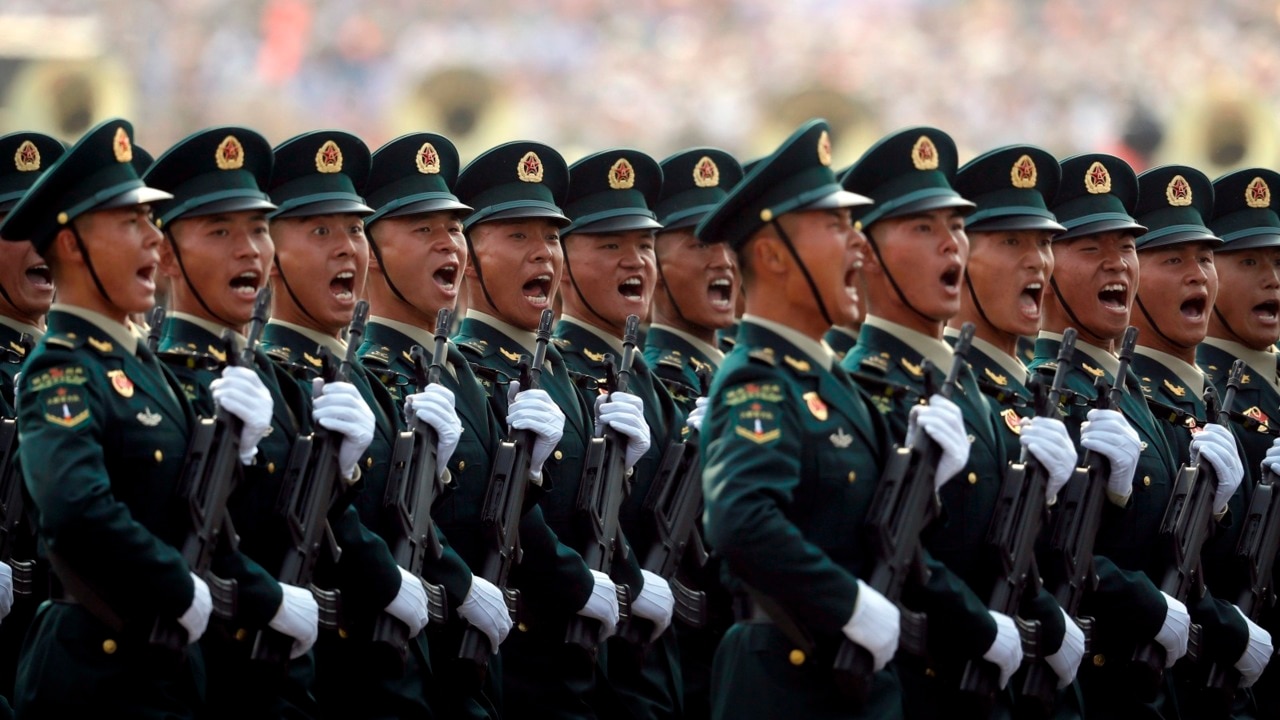Christopher Pyne: The message is clear – we have allies, we will support them and they will support us
Scott Morrison’s meeting with allies this week is a significant step in avoiding war in the Indo-Pacific, writes Christopher Pyne.

One of the most important meetings of the second Morrison Government occurred in the early hours of Saturday morning.
The leaders of four of the most significant democracies in the Indo-Pacific met for the first time as part of the Quadrilateral Security Dialogue.
The Quad brings together Australia, India, Japan and the United States in an intergovernmental security forum designed to create, in the words of former prime minister of Japan Shinzo Abe, an “Asian Arc of Democracy”.
It was created in August 2007 by the four nations when John Howard was our prime minister.
Foolishly, Kevin Rudd’s government withdrew from the Quad in 2008, embarrassing the other members and causing Australia to be excluded from the Malabar military exercises between the other three countries until we were invited to rejoin Malabar in 2020.
It was one of the worst decisions by the Rudd government. It was designed to please China. All it did was show China that we could be separated from our friends. It took years to earn India’s trust again.
On Saturday morning our time, President Joe Biden, Prime Minister Narendra Modi, Prime Minister Yoshihide Suga and Prime Minister Scott Morrison met virtually, in the first of the Quad’s leaders’ dialogues.
This is a significant turn of events.
China’s behaviour in the past several years has caused these four nations to want to come closer together.

China is in dispute with the countries of East Asia over their claims in the South China Sea and East China Sea. They have clashed with India in the Ladakh and blood has been shed between the Indian and Chinese military in recent months.
They have imposed significant trade restrictions on Australia and have published a 14-point list of grievances that they have with the Australian government’s policies.
China has made it very clear that it doesn’t appreciate the engagement of the United States in the Indo-Pacific.
This is a sensitive time and getting more sensitive.
Just last week, in a speech to the annual conference of the Chinese Communist Party, President Xi Jinping stated, “the entire military must co-ordinate the relationship between capacity building and combat readiness”.
At the same time, in Washington DC, the commander of the US forces in the Pacific theatre, Admiral Philip Davidson, warned the members of the US Congress that the US needed to increase its military spending because China was investing in weaponry that could only have an offensive, not defensive, capability. He also warned that China could invade Taiwan within six years.
None of this is idle sabre-rattling. Ask the people of Hong Kong – this week, China completed the subsuming of Hong Kong into the mainstream of China proper, governed from Beijing. The motion creating a process whereby candidates for election to the Hong Kong Assembly would need to be centrally approved was carried unanimously by the conference of the Chinese Communist Party, with one abstention out of several thousand delegates.
China has completed its reunification with Hong Kong. The outstanding item of business is what Beijing regards as the rogue province of Taiwan.
All of this has grave implications for Australia.
While the agenda of the leaders’ Quad meeting was focused heavily on the four nations’ co-operation internationally in response to the coronavirus pandemic, the significance of the meeting was not lost on China.

Usefully, the meeting pledged to create a billion doses of vaccine, to be made in India, paid for by the United States and Japan, and distributed by Australia. It’s important because China has undertaken its own vaccine diplomacy in the developing world in recent months.
Mr Morrison did not downplay the significance of the leaders’ meeting but he tried to give it broader context in order to assure Beijing that the Quad is not intended to be a ring around China in a military sense.
He said: “(The Quad) is about ensuring we can trade more easily; it’s about ensuring we can do that more peacefully, that there is freedom of movement within the seas and overflight of the area to ensure there is facilitation, trade and movement across our great region.”
I’m sure it is all that. It is potentially more.
While the Trump administration treated allies poorly, the Biden administration has promised to be the opposite. This meeting on Saturday was the first of any multilateral leaders’ meeting convened by Mr Biden. In the world of diplomacy that is a clear signal of intent.
The Biden White House wants China to know that it won’t be dealing with China just unilaterally. The message is clear – we have allies, we will support them and they will support us.
The economies and militaries of the four democracies are formidable. United they are much stronger than apart. In avoiding war in the Indo-Pacific in at least the short term, it is vital that they evince strength of purpose and choreography of movement. Strength, not weakness, is the surest antidote to missteps on the path to combat.



